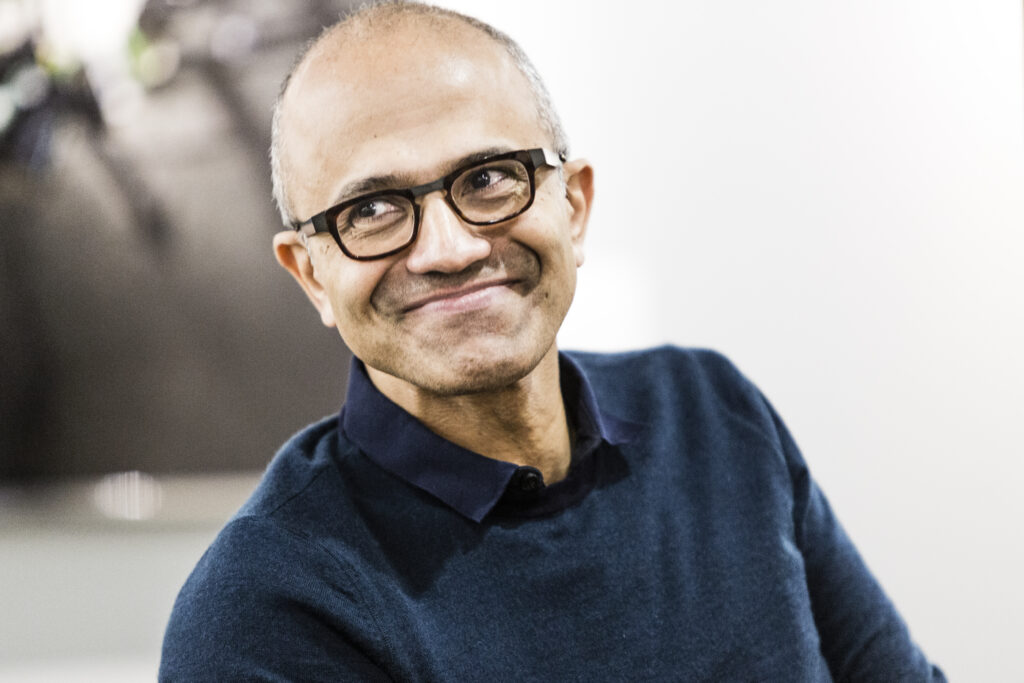Join our daily and weekly newsletters for the latest updates and exclusive content on industry-leading AI coverage. Learn More
Microsoft CEO Satya Nadella’s endorsement of Google DeepMind‘s Agent2Agent (A2A) open protocol and Anthropic’s Model Context Protocol (MCP) will immediately accelerate agentic AI-based collaboration and interdependence, leading to rapid gains in agentic-based apps and platforms.
Nadella’s endorsement delivers the catalyst the agentic AI development community needed to fast-track their collaborations, leading to entirely new apps, platforms and networks. Having historically been open about the potential for agentic AI to integrate across platforms, yesterday’s announcement, which also unveiled upcoming support for CoPilot Studio and Foundry, set a new precedent in how committed Microsoft is to open agentic standards.
On Wednesday, Nadella wrote on X (formerly Twitter) that “Open protocols like A2A and MCP are key to enabling the agentic web,” before announcing upcoming support in Copilot Studio and Foundry. While often agreeing with the concept of open standards for agentic AI integration, this is the first time he’s endorsed a standard publicly. Nadella’s influence on the industry will lead to a shift from proprietary ecosystems toward cross-platform, agentic AI collaboration.
Open protocols like A2A and MCP are key to enabling the agentic web. With A2A support coming to Copilot Studio and Foundry, customers can build agentic systems that interoperate by design. https://t.co/8wZGYU8kkj
— Satya Nadella (@satyanadella) May 7, 2025
Committing to open architectures
Nadella’s history of championing open, interoperable AI architectures spans over a decade. Throughout his many keynotes and interviews, Nadella has made it clear that open standard, not proprietary silos, are among the most reliable catalysts there are to drive adoption of new AI technologies.
As early as 2018, Nadella highlighted Microsoft’s collaboration with Facebook on ONNX (Open Neural Network Exchange), an open model format. He said, ONNX “is supported broadly now by all of the frameworks… as well as the hardware acceleration from Intel, Qualcomm, and Nvidia.”
Late last year, he reaffirmed an open platform approach to AI development, saying, “We’re building on the open platform ethos of GitHub, bringing multi-model choice to Copilot.” One of the primary goals of that effort is to enable developers to leverage AI models from any provider instead of being locked into a single vendor.
Earlier this year, Nadella doubled down on openness in agentic AI architectures, apps and platforms, emphasizing that open source “absolutely has a massive, massive role to play” in advanced AI systems. He added that “having a posture that allows interoperability is incredibly important” for enterprise AI.
Nadella has also predicted that the more AI models become capable of taking on more complex tasks, the more the “models themselves become more of a commodity, and all value gets created by how you steer, ground, and fine-tune these models with your business data and workflow.” Through dozens of interviews and keynotes, Nadella continues to underscore that the real competitive edge comes from an open, flexible ecosystem where organizations can mix, match and customize AI components to suit their needs.
A2A and MCP are growing in importance
Nadella’s endorsement of A2A and MCP protocols shows how far the Microsoft senior management team has agreed that an open protocol approach is the best direction for the company. Endorsing both on the same day shows how far Microsoft is in its strategies related to agentic AI collaboration, integration and how diverse agentic AI architectures can be combined.
Below is a table comparing each protocol along with a short explanation of its relevance in enterprises.
Addressing the past of enterprise vendor lock-in early
With enterprise deployments of CoPilot being a strategic priority at Microsoft, it’s understandable that Nadella took a preemptive step of reducing enterprise buyers’ concerns over vendor lock-in.
Previous generations of the company’s products sold into enterprises were known for enforcing vendor lock-in either through complex and costly pricing strategies or challenging integration techniques, especially if a comparable Microsoft-native product was available.
Nadella has long signaled to enterprises that he sees their infrastructure as being heterogeneous. Stepping into the role of cross-platform enabler, Nadella positions Microsoft’s Azure AI strategy as a viable alternative for enterprise DevOps workflows and ongoing development, for example. Copilot can quickly become part of multi-agent workflows now.
Interested in enabling agentic AI providers to collaborate in creating new agentic apps, systems and platforms, Microsoft’s enforcement of A2A and MCP will prove to be a noteworthy catalyst for agentic AI’s growth.
A quick win for security and compliance
From a compliance standpoint, standard protocols simplify auditing and streamline compliance. When agent-to-agent interaction is structured through A2A, organizations can track exactly which entities exchanged information and when. This end-to-end visibility helps regulators see how customer data flows through various agents. For instance, if a user’s personal medical records are passed between an insurance agent and a hospital’s scheduling agent, A2A logs can confirm data privacy compliance.
Conversely, MCP standardizes how AI systems request and consume data from enterprise data sources. It also resembles zero trust because role-based permissions govern each request, which helps analyze data leakage. Microsoft’s reinforcement of these protocols ensures that even if an agent changes providers, say, from a Microsoft-built solution to one from a smaller vendor, the same compliance rules remain in effect, reducing the risk of security gaps.
Nadella just accelerated agentic AI innovation
Backing A2A and MCP open protocols ensures the core components of any agentic AI tech stack provided by Anthropic, Google or Microsoft will be compatible and capable of interoperability from the first product releases. That removes significant roadblocks for the hundreds of agentic AI startups and partners that rely on these companies for future growth.
Removing friction and costs from integrating systems increases data velocity, improves data quality and helps enterprises rely on these systems to serve customers more effectively.
When speed is the feature everyone is chasing, going all-in on open standards is the fuel that will most certainly drive faster innovation and more sustainable growth for every agentic AI provider.


